
The UN Special Rapporteur for freedom of religion or belief visited India last year and just released her report on the country, highlighting, amo ng other things 2 matters that are of special concern to Sikhs: (1) the situation of religious or belief minorities (generally) and (2) justice for victims and survivors of communal violence (including Operation Bluestar in particular).
ng other things 2 matters that are of special concern to Sikhs: (1) the situation of religious or belief minorities (generally) and (2) justice for victims and survivors of communal violence (including Operation Bluestar in particular).
This report will serve as a great tool for future advocacy and education campaigns, as the UN Special Rapporteur is by mandate, an independent entity (though also a diplomatic entity whose mandate is funded by the States she monitors, so of course there are limits to what can be said and done). The office is also a widely respected authority, whose reports are persuasive and create pressure in courts and government offices. Having official international support and recognition of issues that have long been a struggle for Sikh activists to legitimate (lack of accountability, lack of compensation) should advance the Sikh movement to hold accountable Indian government authorities identified as responsible for innocent civilian deaths. Between this report, and the recently released Ensaaf report, 2009 looks like it’s going to be a good year for advancing accountability for crimes by Indian authorities against Sikhs in the 80s and 90s.
One Afghani woman has had enough. And her story has struck a chord with many Indian woman who are now supporting her struggle to hold accountable an Indian Army doctor who married and abandoned her in Kabul after three weeks of marriage. Major Pant eventually called her, after returning to India, to tell her he was already married and had two children.
Twenty-year-old Sabra Ahmadzai finished her final high school test in Afghanistan, took out a bank loan and then flew to India on the last day of November. She came to look for an Indian army doctor who she said had deceived, married and then abandoned her in Kabul, making her an object of shame and ridicule.
In India, Ahmadzai’s journey has become a rallying point for young women across college campuses who find in her a source of inspiration to question powerful hierarchies of traditional societies. The students in three universities in the capital are trying to set up a “Justice Committee for Sabra” by enlisting eminent lawyers, retired judges, professors and independent activists. [Washington Post] (emphasis added).
She had been pressured by her family and community to marry Major Pant who had been stationed in the medical hospital in Kabul. He was twice her age. Pant approached her family three times with marriage proposals. When her mother turned him away for not being Muslim, he returned with a priest who would convert him to Islam.
“I did not love him. He was my boss and twice my age. But the elders and the priest said, ‘We have given our word and cannot take it back,’ ” she recalled. “He had won their hearts by treating sick children of my relatives, too. They liked him. I followed their wishes obediently.” [Washington Post]
What’s striking are the layers of abuse that Ahmadzai is fighting against- from the marriage coerced by her community to a man twice her age, her battle to hold accountable an Indian army doctor for his lies and manipulation, to the stigma imposed on her as an abandoned bride. Ahmadzai has responded to the stigma by confronting the doctor who manipulated her. I’d be curious to know how she feels about the pressures from her own community, which journalists haven’t questioned her about. For now, Ahmadzai is at least confronting the Indian army doctor to regain, or perhaps gain for the first time, power and control over her own life.
We have often heard about the Sikh regiment in the British and Indian Armies. Recently, the Gurkhas, a South Asian group, who also has made-up a large portion of the British Army, are seeing a U-turn in an earlier policy that did not allow Gurkhas soldiers to settle in Great Britain.
The Tribune reports:
In a U-turn of its earlier policy, Britain is set to allow an estimated 36,000 Gurkhas who served in the British Army before 1997 and their families to settle here, conceding a long-pending demand by the former soldiers.
The home office was forced to take action after a ruling from high court judges in October that the government needed to review its policy on whether the Gurkhas who had served the army before 1997 — the year Hong Kong was handed over to China — could live in Britain.
However, the Nepalese government is concerned about the loss of so many soldiers and their families along with their army pensions, that they have warned the Home office that, “ … Nepal might scrap the 1947 agreement under which its young men have been recruited each year” to serve in the British Army. Since the signing of the agreement, the Nepalese economy has heavily relied on the army income.
Monday marked notable achievements in the human rights world, for Sikhs affected by the Indian government’s abuses in Punjab in the 80s and 90s, as well as in the arena of international criminal justice.
First, Ensaaf recently partnered with Benetech, a technology organization that has created data analysis software to measure whether documented human rights abuses occurred on a systematic, widespread scale or whether they were arbitrary. On Monday, Ensaaf and Benetech’s Human Rights Data Analysis Group (HRDAG) released their findings.
The report by Ensaaf and HRDAG, Violent Deaths and Enforced Disappearances During the Counterinsurgency in Punjab, India, presents empirical findings suggesting that the intensification of counterinsurgen
cy operations in Punjab in the early 1990s was accompanied by a shift in state violence from targeted lethal human rights violations to systematic enforced disappearances and extrajudicial executions, accompanied by mass “illegal cremations.” Indian security officials have dismissed claims of human rights violations as unavoidable “aberrations” during the counterinsurgency against alleged terrorists in Punjab from 1984 to 1995.
“This report challenges explanations by Indian security forces for enforced disappearances and extrajudicial executions using more than 20,000 records from independent sources which have been analyzed using statistical methods,” said Romesh Silva, a demographer at HRDAG and co-author of the report. “This scientific analysis reveals that answers given by the government regarding the nature and extent of these violations are implausible given the available evidence. The victims and their families have a right to the truth.” [ensaaf]

A Sikh gentleman has been involved in a Ontario Human Rights Tribunal matter relating to alleged discrimination against him for wearing a turban at work.
The case centers around treatment that this gentleman received at the hands of a Home Depot employee while posted by a third party security company to provide security detail for a Home Depot construction site. What is particularly disturbing about the allegations are the allegations of racial bias as the employee is alleged to have refused entry to Mr. Deepinder Singh Loomba but also to have stated that he had been successful in the past in not allowing any turbaned persons to work at his site.
Mr. Loomba is a well educated professional who has worked with international companies in other countries and had recently immigrated to Canada, working in security while he was getting settled here. He has decided to take up this case on account of what he saw as a racial bias and a refusal by a large retailer like Home Depot to recognize and deal with the bias. Mr. Loomba has been supported by the Ontario Gurudwara Committee and now needs your moral support.
After over a year of legal haggling he has his day in court and will be in hearings today and tomorrow at the Human Rights Tribunal of Ontario (located at 655 Bay St., 14th Floor, Toronto). The hearings started on Monday and will continue until Wednesday (three days) from 9.30 to 4:30 each day and are open to the public. Moral support and awareness would be appreciated – all the press we can get would also help to put some pressure on Home Depot to do the right thing.
All along Mr. Loomba has insisted that this outcome include an apology to the community and an acknowledgment by Home Depot that they need to implement more racial awareness and sensitivity training in the company. He has stuck this out for the good of the community and it would be great if people could show support and help him out at this crucial time in his case”
It’s been a long time coming but Sikhs all across the globe seem to be making more of an effort to celebrate Lohri today, not only for their sons but also for their daughters. In Tarn Taran, Punjab, this year’s Lohri’s celebrations were dedicated to the 101 baby girls who live in the area.
“The main purpose of this celebration is to make people aware of the social evil of female foeticide. The male and female ratio is getting unbalanced with each passing day. In order to balance the gap in the Sikh society, Akal Takht has given order not to support female infanticide. Female foeticide is as bad as slaughtering a holy cow,” said Parvinder Singh. Chairman, Kalpana Chawla Pragtisheel Society.
::
Also in the news today is the story of Lak[h]winder Singh, a Giani in Kelowna, Canada who was arrested and is being charged for sexual exploitation, sexual interference, two counts of sexual assault and one count of assault. The allegations that give rise to the sexual offences began in late 2007 and the victim is now 16 years old.
Lakwinder Singh, the 29-year-old preacher at a Rutland temple, Gurdwara Guru Amandas Darbar, was arrested after a family with ties to the temple brought forward allegations of sexual impropriety to police last week.
Tarsem Singh, a spokesman for the Gurdwara, said Lakwinder Singh was employed at their temple for nearly seven years, but has since been fired. In addition, the gurdwara is supporting the police’s efforts in finding any other possible victims.
The dance continues. India’s infamous Central Bureau of Investigation just made a trip to the US to record testimony from two witnesses who identified Jagdish Tytler as an organizer of three days of violence in 1984 against Sikhs in Delhi.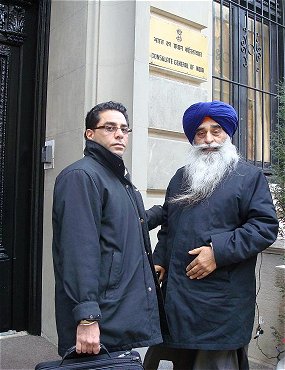
A team from India’s Central Bureau of Investigation came to the U.S. Dec. 22-26 to take testimony from two key witnesses who allege that former Union Minister Jagdish Tytler organized three days of violence against Sikhs in New Delhi 1984, following the assassination of Prime Minister Indira Gandhi. [India West]
Jasbir Singh, one of the men whose testimony was taken, was a witness before the Nanavati Commission in 2004. The Nanavati Commission found that there was sufficient evidence against Tytler to open an investigation against Tytler. However, the CBI closed the investigation last year claiming that it couldn’t find the witnesses.
The Nanavati Commission concluded that sufficient evidence against Tytler existed to launch an investigation. The CBI had closed the case against Tytler — still a prominent member of the Congress party — last September, saying it could not find the witnesses. It reopened the case after several media reported that Jasbir Singh was residing in Fremont, Calif. [India West]
Two steps forward and one step back. Just when you think we’ve made some progress in terms of creating awareness about who we are as Sikhs, you hear of incidents like this. Here’s the story on NBC’s KGET.
The Sikh blogosphere is still very young and still in its incipient phases. While one  day I hope we will have something like this (ahem, Mr.Sikhnet any takers?), for now, we will try to (at times) highlight some of the best of the blogs.
day I hope we will have something like this (ahem, Mr.Sikhnet any takers?), for now, we will try to (at times) highlight some of the best of the blogs.
SidhuSaaheb’s blog has been a favorite of mine for years. While at times disagreeing, I find his voice refreshing and a unique perspective.
His most recent post, reproduced here in its entirety below the fold, would be my vote for “post of the year.” Contrasting the most recent tragedy in Mumbai with the Sikh Pogroms of Delhi 1984, the differences are truly tragic. Please leave your thoughts on the post here as well as take a moment to visit the author’s own blog to leave your comments.
Last week on TLH we addressed the police brutality faced by the Tagore family in Texas.
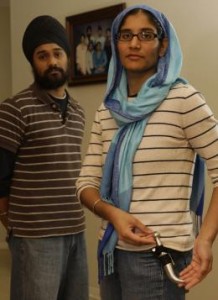 You will find here a consolidated list of how to TAKE ACTION NOW on this injustice. Different organizing tools are available for the Sikh community to act, we just need to use them. Taking action in at least one way is better than none!
You will find here a consolidated list of how to TAKE ACTION NOW on this injustice. Different organizing tools are available for the Sikh community to act, we just need to use them. Taking action in at least one way is better than none!
Please remember, we have to empower ourselves as individuals and a community to take action and not just rely on a few community lawyers or media-based activists. Our actions as a whole are much stronger than a few!
Sign A Sikh Coalition Petition here: Harris County Sheriff-Elect Adrian Garcia is visiting the Sikh Center of Houston on Sunday, December 14, 2008. He will be the new Sheriff for Harris County next year. This petition will be directly handed over to him, so please help us gain as many signatures as possible.
Submit A Question here: Harris County Sheriff-Elect Adrian Garcia is visiting the Sikh Center of Houston on Sunday, December 14, 2008. During his visit the Tagore family and sangat members will be able to ask him questions on the actions he will take in response to the treatment of the Tagore family by police officers. Submit a question for the Tagore family to ask Sheriff-Elect Garcia directly when he visits the Gurdwara.
Call numbers available here, here, and here (numbers are also in the comments section): A few pointers when calling are-
- Be Polite and Respectful
- Express your concern about police brutality and specifically the needless handcuffing of Kawaljeet Kaur Tagore and her family members, including her 60 year old mother
- Express your concern about the needless use of foul curse words against the family by officers
- Express your concern about the lack of knowledge by officers on Sikhs and Sikh practices
Please tell your family and friends about these different ways to act NOW … at the end of the day your voice is stronger in spreading the word than a TLH post, any blog, or an organizational e-mail! 🙂
UPDATE: If you are outraged by this incident, please CALL THE HARRIS COUNTY SHERIFF’S OFFICE (TEXAS) @ (713-755-6044) and let Harris County Sheriff Tommy Thomas know how you feel. These Officers need to be reprimanded and we as a community need to push the Sheriff’s Office to act. You can also contact Houston Mayor Bill White at (832-393-1000) or mayor@cityofhouston.net.
The night before Thanksgiving you are robbed of your sense of security and $15,000 of your home belongings AND THEN you are robbed of your humanity by Sheriff’s Officers who promise to protect you. All this happens in your own home …
The Tagore family in Texas were criminalized and terrorized because of their Sikh articles of faith after calling in to report a burglary in their home.
Ramandeep Singh Tagore says,
“That night we were actually robbed twice … Once by the actual burglars, who we don’t know who they were, and secondly by the Sheriff’s Department, who we knew who they were.”
Once the Sheriff’s Officers had arrived in their home they started focusing on Kawaljeet Kaur’s kirpan and told her: “You can’t wear that”, she felt like she was being treated “ … like a criminal in my own home … “. Kawaljeet Kaur [Ramandeep Singh Tagore’s sister] told the Houston News that “I didn’t appreciate the way that I was treated that day … I’m a human and I would have expected to be treated like a human.” Kawaljeet verbalized her feelings and constitutional right to practice her faith to the Officers. Their response was pushing her out of her house, having her sit in the middle of the street, and handcuffing her.
Ramandeep said to Harpreet Kaur of Sach Productions (watch the video below for more in-depth reporting)
“first we are calm and then the aggression … brutality type of thing … pushing and shoving is starting when the cops get here I mean their acting like thugs … if we are civilizingly dealing with them then why do you have to come push me and shove me when we’re trying to talk to you … is it because I look different or something.”
Manjit Kaur, Ramandeep’s mother, felt: “Dekhoo ik taan saade ghar robbery hoyi hai ..tusi lok saadi help karan aaye aan k saanu arrest karan aaye aan” (Look there has been a robbery in our house … have you people [Sheriff’s Officers] come to help us or arrest us?)
The contents of an email from Tarlochan Singh, a member of the Indian Parliament, to Jagpal Singh Tiwana were published in The Sikh Times recently. 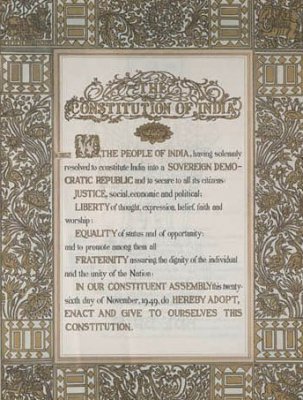 Apparently, the member of Parliament is trying to have the Indian Constitution amended so that Sikhs are no longer referred to as Hindus for the purposes of Article 25 (freedom of religion).
Apparently, the member of Parliament is trying to have the Indian Constitution amended so that Sikhs are no longer referred to as Hindus for the purposes of Article 25 (freedom of religion).
Dear S. Tiwana Ji,
When I became a Member of Parliament I moved a Private Members Bill for an amendment of Section 25 of the Indian Constitution such that the Sikhs are treated as an independent religion. Under the present Constitution Sikhs are regarded as part of the Hindus. So this amendment is required for getting us independent status. My bill came before the House for discussion twice but due to disturbances in the House no proceeding could take place. Now I am waiting for the next opportunity. [The Sikh Times]
Currently, freedom of religion in India’s Constitution (Article 25) reads as follows:
Today is World AIDS Day. The theme of this year’s World AIDS Day is leadership and efforts are focused on prevention. Indeed, on this 20th anniversary of World AIDS Day, President-elect Obama has stated that his administration will focus on prevention and treatment for at-risk communities in the U.S. and rest of the world. World AIDS Day, is the day when organisations from around the world come together to bring attention to the global AIDS epidemic. In 2007, there were 33 million people living with HIV/AIDS. Women account for 50% of all adults living with HIV worldwide and young people (under 25 years old) account for half of all new HIV infections worldwide.

In line with the theme of leadership which is the message of this year’s anniversary, I came across AIDS Jagoo – an effort by Mira Nair and the Bill and Melinda Gates Foundation – to bring together Indian directors and actors to create four short dramatic films that aim to “dismantle myths and misconceptions of HIV/AIDS.” The four AIDS Jagoo films come from various parts of India – each its own genre and with a different point of view on the HIV/AIDS epidemic.
Migration, directed by Mira Nair, discusses HIV/AIDS from an urban/rural angle. Blood Brothers, directed by Vishal Bhardwaj, follows the journey of a young man from a positive HIV diagnosis to the eye-opening conclusion. Prarambha (The Beginning), directed by Santosh Sivan, deals with society’s prejudices against people with AIDS through the journey of a young boy’s search for his mother. Positive, directed by Farhan Akhtar, shows a family coping with AIDS and reveals the courage they bring to overcome the tragedy. Most of the films have subtitles. Hopefully you’ll be able to watch some or all of these and join the global community in remembering those impacted by HIV/AIDS.
In a recent THL discussion on Prop. 8 we have been addressing the use of Sikh principles in taking a position on homosexual marriage.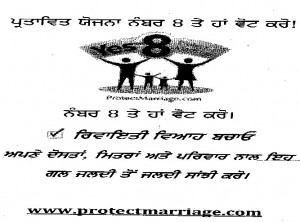 At a recent Nagar Keertan in Yuba City, California there were “Yes on Prop. 8” fliers along with the really interesting T-shirts. Thus, I think religion is an important part of the discussion on Prop. 8 because there is a reason why this state-related material is at religious events. Religion is a moral compass that guides many people’s decisions in all kinds issues. Thus, I don’t condemn those who have used religion as their moral source for voting Yes or No on Prop. 8. However, I do disagree with how Sikh scripture has been misused as “rules” rather than concepts that guide our decisions. I attribute these actions to a general lack of understanding and education around the Guru Granth Sahib Ji in our community. This education is a fundamental issue we as a Quam need to find practical solutions for rather than blame people for not knowing.
At a recent Nagar Keertan in Yuba City, California there were “Yes on Prop. 8” fliers along with the really interesting T-shirts. Thus, I think religion is an important part of the discussion on Prop. 8 because there is a reason why this state-related material is at religious events. Religion is a moral compass that guides many people’s decisions in all kinds issues. Thus, I don’t condemn those who have used religion as their moral source for voting Yes or No on Prop. 8. However, I do disagree with how Sikh scripture has been misused as “rules” rather than concepts that guide our decisions. I attribute these actions to a general lack of understanding and education around the Guru Granth Sahib Ji in our community. This education is a fundamental issue we as a Quam need to find practical solutions for rather than blame people for not knowing.
That said, I believe a fundamental part of Sikhi is love … the morality of love. It’s not the happy happy love or perfect one that excuses all actions, but the one that makes us human enough to see the light of Waheguru in all …. even those we detest. What is this love … I think Khalil Gibran poignantly explains it in his book “The Prophet”:
“For even as love crowns you so shall he crucify you. Even as he is for your growth so is he for your pruning. Even as he ascends to your height and caresses your tenderest branches that quiver in the sun, so shall he descend to your roots and shake them in their clinging to the earth.”
The elections are over, but even after the last card has been punched and the last absentee ballot counted, the political fervor that they ignited is still alive. While the country took two steps forward on its march towards complete civil rights by electing its first African American president , it took a step back by taking away the rights of particular individuals. California’s Prop. 8 received national attention (no surprise with more than $70 million in campaign spending). The proposition reversed a ruling from the California Supreme Court, which earlier this year declared that banning same-sex marriages was discriminatory. Prop. 8 – which passed albeit by a hair – will for the time being change the state constitution to define marriage as only between a man and a woman.
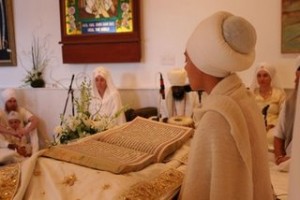 People feel really passionate about this topic. Really really passionate. What interests me the most, however, are the arguments for and against same-sex marriages and particularly what it does or does not say in the Sri Guru Granth Sahib about this topic. People are actually using words from the Sri Guru Granth Sahib to make their point – and I’m not sure that’s legit. In fact, I’ve been following a heated discussion on a certain social networking site where young Sikh individuals have been going back and forth about what voting for or against Prop. 8 means. The most common argument against same-sex marriages is that in the Sri Guru Granth Sahib it states that marriage is the union of two souls, husband and wife, man and woman, male and female. The other side of the argument is that Sikhi advocates equal rights for all and the Sri Guru Granth Sahib does not specifically make any comment on same-sex marriages. However, there seems to be a lot of ambiguity as to what is actually said. One reference states,
People feel really passionate about this topic. Really really passionate. What interests me the most, however, are the arguments for and against same-sex marriages and particularly what it does or does not say in the Sri Guru Granth Sahib about this topic. People are actually using words from the Sri Guru Granth Sahib to make their point – and I’m not sure that’s legit. In fact, I’ve been following a heated discussion on a certain social networking site where young Sikh individuals have been going back and forth about what voting for or against Prop. 8 means. The most common argument against same-sex marriages is that in the Sri Guru Granth Sahib it states that marriage is the union of two souls, husband and wife, man and woman, male and female. The other side of the argument is that Sikhi advocates equal rights for all and the Sri Guru Granth Sahib does not specifically make any comment on same-sex marriages. However, there seems to be a lot of ambiguity as to what is actually said. One reference states,
[The Sri Guru Granth Sahib] is seemingly silent on the subject of homosexuality; however, married life is encouraged time and time again in Guru Granth Sahib Ji. Whenever marriage is mentioned, it is always in reference to a man and a woman. Some Sikhs believe that Guru Granth Sahib Ji is the complete guide to life, and if a marriage between two of the same sexes is not mentioned, it is therefore not right. The counterargument to this is that man and woman are only mentioned in this way to give light to the relationship of the soul and the soul force as being one. This denies gender and sex as an issue. Thus, Sikhism is more concerned with ones attainment of enlightenment rather than habitual desires such as sexuality. True love is attained through the Guru and no man speaks on behalf of the Guru as the Granth is open to interpretation and misrepresentation. [Link]
 As I searched the Internet for information on the 2008 Diwali celebration at the Golden Temple, I came across this video on YouTube. It shows a beautifully lighted Golden Temple complex, with fireworks going off in the nighttime sky. My joy at watching the visuals soon turned to discomfort in hearing the sounds — the cracking of the fireworks reminded me of gunshots, gunshots that went off in that same area over twenty-four years ago.
As I searched the Internet for information on the 2008 Diwali celebration at the Golden Temple, I came across this video on YouTube. It shows a beautifully lighted Golden Temple complex, with fireworks going off in the nighttime sky. My joy at watching the visuals soon turned to discomfort in hearing the sounds — the cracking of the fireworks reminded me of gunshots, gunshots that went off in that same area over twenty-four years ago.
As I thought about the horror of Operation Blue Star and the subsequent anti-Sikh riots in Delhi, a friend relayed this disturbing and upsetting news: the Indian Army finally admitted last month that Sikh soldiers were among those killed in the anti-Sikh pogrom. Up until last month, the Indian Army reportedly hid the names of the soldiers who were killed in the riots. In fact, the government allegedly “hatched a conspiracy to hush up [the] matter by labeling the soldiers as deserters.”
Over the weekend, a wave of bombs targeting civilians was unleashed in the Indian capital of Delhi. With the death toll rising (so far approximately 30), a group called the “Indian Mujahadeen” has been widely reported by the media as having claimed responsibility. This was not the first time the Indian people has seen such attacks.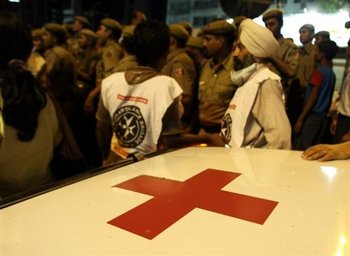 In fact, this was the third such wave this year alone.
In fact, this was the third such wave this year alone.
While families are mourning the loss of their loved ones, I can only express grief for their loss. I have read about individual acts of heroics:
“Last night was spent running from one department to the other looking for my son who had gone to Gaffar Market with his friends when the blast took place. He was injured and was helped by a young Sikh who brought him to the hospital on his scooter and later called us to inform that my son was injured. I did not even get a chance to thank the good Samaritan properly,” said Mohammed Ahmed. He said he was happy that his son was alive. [link]
However, soon afterwards, I have read some of the scariest reports of all. With people still in grief, fascists within the Indian state have not hesitated to hope for a sort of declaration of martial law over the entire country.
An Australian private school has agreed to apologize to a Sikh boy who was denied admission for his refusal to cut his hair and shave (as required by the school dress code). Surprisingly, this is the first time Australia has faced an anti-discrimination case of this nature:
The Anti-Discrimination Tribunal case was the first of its kind involving a Sikh student in Australia, although a British court found in a favour of a Sikh student in a similar trial more than 25 years ago.
An out-of-court settlement was reached in recent weeks after the school agreed to issue a public apology and pay the family undisclosed compensation. Ormiston College yesterday confirmed the settlement, which thwarts a public trial in the tribunal next month.
Australia has a system of minority rights protection that falls broadly under the “multiculturalist” umbrella (albeit in a very different way from the U.K. model). What I find amazing is the broad steps private schools are taking at this juncture to avoid accommodating religious minorities. Like the Sarika Singh case (also involving a private school), both of these schools are, at this point, familiar with its own Sikh community. Cultural competency and latent racism aren’t really compelling or effective screens for bigoted policies. In both cases, families had to turn to a legal remedy (and legal fees) to ensure access to a high quality education for their children.
There’s been a backlash around religious diversity in Western Europe for a while now, with the idea of “secularism” taking on a distinctly anti-religious (or, in most cases, anti-non-Christian-religions) flavor that isn’t really echoed in American conceptualizations of secularism. Do these two school cases mark the beginning of a reaffirmation of the principles underlying anti-discrimination laws? Is this a distinct position from what we see in France, Germany, Turkey and Italy?
On Wednesday, August 27, the Delhi High Court sentenced 4 men (Lal Bahadur, Ram Lal, Virender and Surinder Pal Singh) to life in prison, eighteen years after a trial court acquitted them for lack of evidence. The men were charged with rioting, murder, and conspiracy, related to the deaths of Rajinder and Sardool Singh who were burnt alive on November 1, 1984 and their property looted in Sagarpur. The 4 men were also fined Rs. 21,000 each (about $481.43 per person). The High Court stated:
“it is a case where the members of one community were singled out and were murdered and their properties were burnt and looted. Such lawlessness deserved to be sternly dealt with”. [link]
Interestingly, the court found that conspiring to commit a crime was equal to committing the actual crime (I’m assuming that “members of unlawful assembly…in prosecution of the object…” is conspiracy; it’s unclear from the press release whether this is for conspiracy to riot/murder/combination):
“We may observe here that the liability of the members of unlawful assembly who knew that an offence was likely to be committed in prosecution of the object for which they had assembled is equal to those who commit it,” the Bench observed in a judgement on an appeal filed by the state challenging the trial court’s acquittal order. [link] (emphasis added)
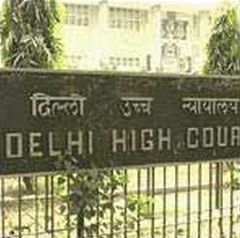 According to a couple of sources, the state appealed the case after the trial court found there wasn’t enough evidence in 1990. If this is true, and not just bad journalism (fabricated facts inserted into the press release), I wish I could congratulate the prosecutors who pursued and won this case.
According to a couple of sources, the state appealed the case after the trial court found there wasn’t enough evidence in 1990. If this is true, and not just bad journalism (fabricated facts inserted into the press release), I wish I could congratulate the prosecutors who pursued and won this case.
A sessions court had earlier on October 31, 1990, acquitted the accused due to lack of evidence. But the state had challenged the judgment in the Delhi high court stating that it have enough evidence to nail the accused persons. [link]
While those in the diaspora are less likely to follow, many in South Asia have had one eye on the Beijing Olympics and the other looking at the current situation in Kashmir.
This past Friday hundreds of thousands of Kashmiri protestors took to the street calling for ‘azadi’ (freedom) from the tyranny of the Indian state. Viewers in India have looked on in surprise and many different reactions can be found in the Indian press. I will highlight one.
For some more context, Al-Jazeera English has some excellent news analysis. It is a bit lengthy, but well-worth the watch:


